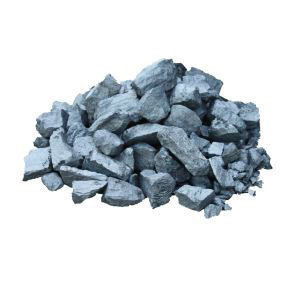
Ductile iron (also spheroidal graphite iron, nodular iron or nodular cast iron) is a type of high carbon, low sulfur iron that is produced by inoculating molten base iron with magnesium before casting. This promotes the precipitation of graphite in the form of discrete nodules instead of interconnected flakes. It is one of the most important forms of iron and accounts for 40% of all spheroidal graphite iron castings, making it an important part of the iron foundry industry.
Magnesium ferrosilicon based treatment alloys, often called nodularizers, are the most popular products for producing ductile iron. They provide a wide range of benefits, including improved magnesium recovery and simplifying slag separation and removal.
Nodularizers can be supplied as a ready-to-use solution or, more commonly, as an inoculant that is added to the liquid iron bath via cored wire technology. The choice of which inoculant to use depends on several factors such as the treatment method, degree of reactivity and economy of addition rate.
Besides nodularizers, there are also conditioners and recarburizers available to help improve the efficiency of your ductile iron production processes. The recarburizers can improve magnesium recovery and reduce the effect of fading. They can also ensure that the carbon content of your melt is uniform throughout the casting process, and are available worldwide from Elkem.

Recarburizers can be made from a variety of sources, such as electro-nickel, ingot copper, tin, lead and zinc. They can also be produced from a 50-50 nickel-copper alloy, which is a high purity material that is easier to work with.
These recarburizers are usually used as a pre-treatment to the ductile iron prior to inoculation and are able to significantly reduce the fading effect of ductile iron in a range of environments. They are formulated to be readily dissolvable, so the foundry can keep them on the melting floor for extended periods of time, helping control magnesium loss and improving the quality of ductile iron.
Inoculants are a series of ferrosilicon-based alloys that can be added to the liquid iron bath in a precise and accurate amount in order to provoke and certify the formation of the final casting matrix structure. The foundryman, assisted by one of our specialists, will select the appropriate inoculant for each metal treatment application and foundry process.
They can be poured as a solid or sprayed on to the mold surface before inoculation and help reduce the fading effect of ductile metal. They can also be used to prevent the formation of dross and minimize the oxidation losses from the furnace.
A range of recarburizers are available to help reduce slag during the cooling process, which can also be an issue for low volume producers. They are available worldwide from Elkem and can be adapted to suit the conditions in your plant.
Nodularizers can also be formulated with rare earth elements such as cerium and lather. These can reduce the fading effect of ductile graphite and enhance nodule counts in the final cast product. They are typically available in a wide range of compositions, so that the foundry can choose which option is most suitable for their operations.

Write a Message